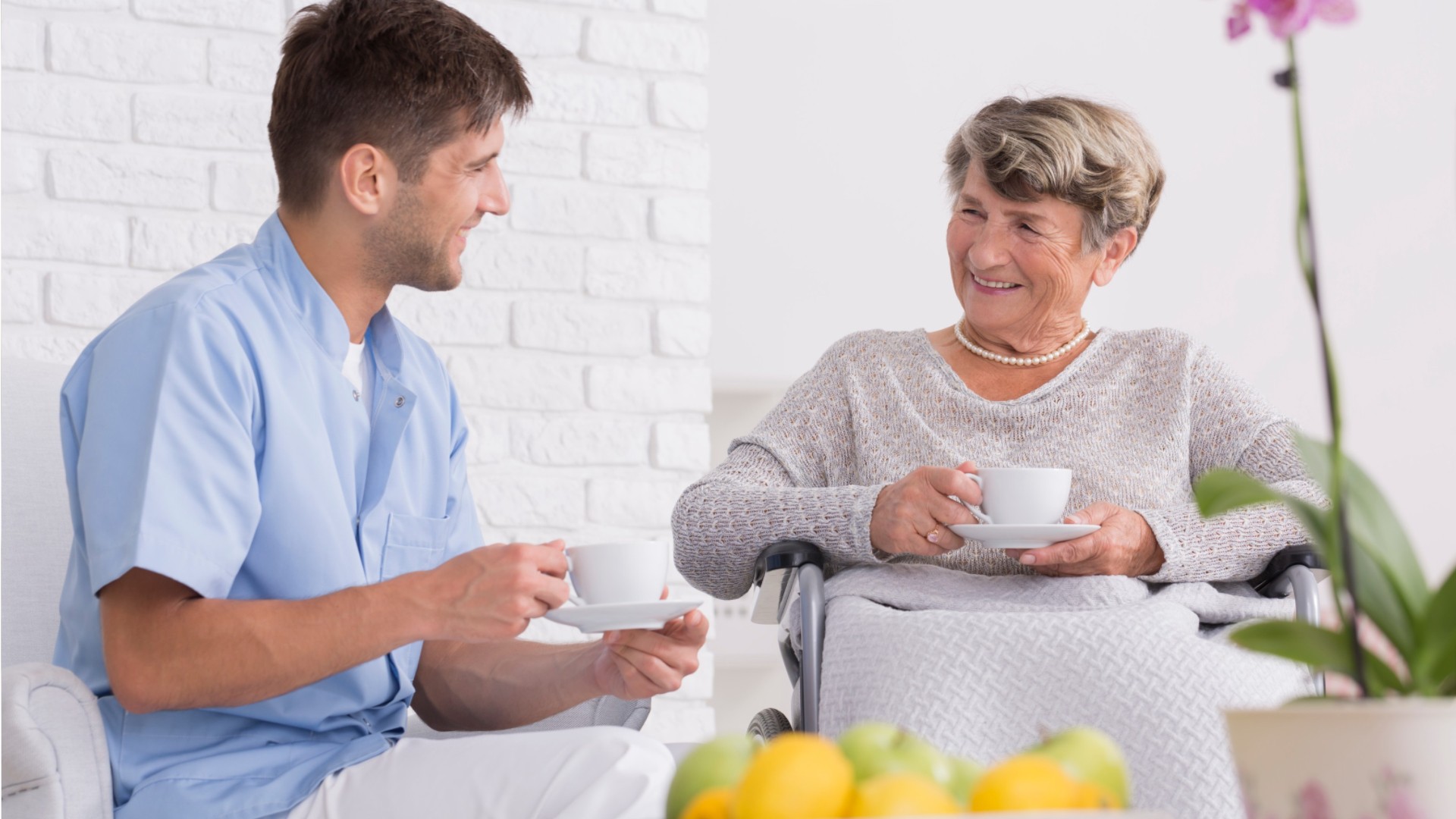Home Health Aides
Certified Home Health Aide (CHHA), Certified Nurses Aide (CNA), Home Care Aide, Home Health Aide (HHA)
 Select a military branch to see samples.
Select a military branch to see samples.
Aerospace Medical Service; Aerospace Medical Service Apprentice, Flight and Operational Medical Technician; Aerospace Medical Service Craftsman, Aeromedical Education Technician; Aerospace Medical Service Craftsman, National Registry Paramedic; Aerospace Medical Service Helper, Flight and Operational Medical Technician; Aerospace Medical Service Journeyman; Aerospace Medical Service Journeyman, National Registry Paramedic; Dental Assistant Apprentice; Dental Assistant Journeyman, Dental Hygienist; Health Services Management Craftsman, Health Information Technology
Combat Medic Specialist; Practical Nursing Specialist; Unit Supply Specialist
Health Services Technician; Medical Administration Specialty
No similar titles were found.
Hospital Corpsman
No similar titles were found.
What they do:
Monitor the health status of an individual with disabilities or illness, and address their health-related needs, such as changing bandages, dressing wounds, or administering medication. Work is performed under the direction of offsite or intermittent onsite licensed nursing staff. Provide assistance with routine healthcare tasks or activities of daily living, such as feeding, bathing, toileting, or ambulation. May also help with tasks such as preparing meals, doing light housekeeping, and doing laundry depending on the patient's abilities.
On the job, you would:
- Maintain records of patient care, condition, progress, or problems to report and discuss observations with supervisor or case manager.
- Provide patients with help moving in and out of beds, baths, wheelchairs, or automobiles and with dressing and grooming.
- Bathe patients.
Knowledge
Business
- customer service
Arts and Humanities
- English language
Skills
Basic Skills
- listening to others, not interrupting, and asking good questions
- thinking about the pros and cons of different ways to solve a problem
Social
- looking for ways to help people
- understanding people's reactions
Problem Solving
- noticing a problem and figuring out the best way to solve it
Abilities
Verbal
- communicate by speaking
- listen and understand what people say
Ideas and Logic
- notice when problems happen
- make general rules or come up with answers from lots of detailed information
Attention
- do two or more things at the same time
- pay attention to something without being distracted
Personality
People interested in this work like activities that include helping people, teaching, and talking.
They do well at jobs that need:
- Optimism
- Sincerity
- Empathy
- Self-Control
- Social Orientation
- Cooperation
Technology
You might use software like this on the job:
Operating system software
- Linux
- UNIX
Video conferencing software
- FaceTime
Electronic mail software
- Microsoft Exchange
- Microsoft Outlook
Education
Education: (rated 2 of 5)
high school diploma/GED or
certificate after high school
usually needed
certificate after high school
usually needed
Job Outlook
Bright
New job opportunities are very likely in the future.
Explore More
- Nursing Assistants
- Occupational Therapy Aides
- Paramedics
- Personal Care Aides
- Psychiatric Technicians
You might like a career in one of these industries:
See more details at O*NET OnLine about Home Health Aides.





